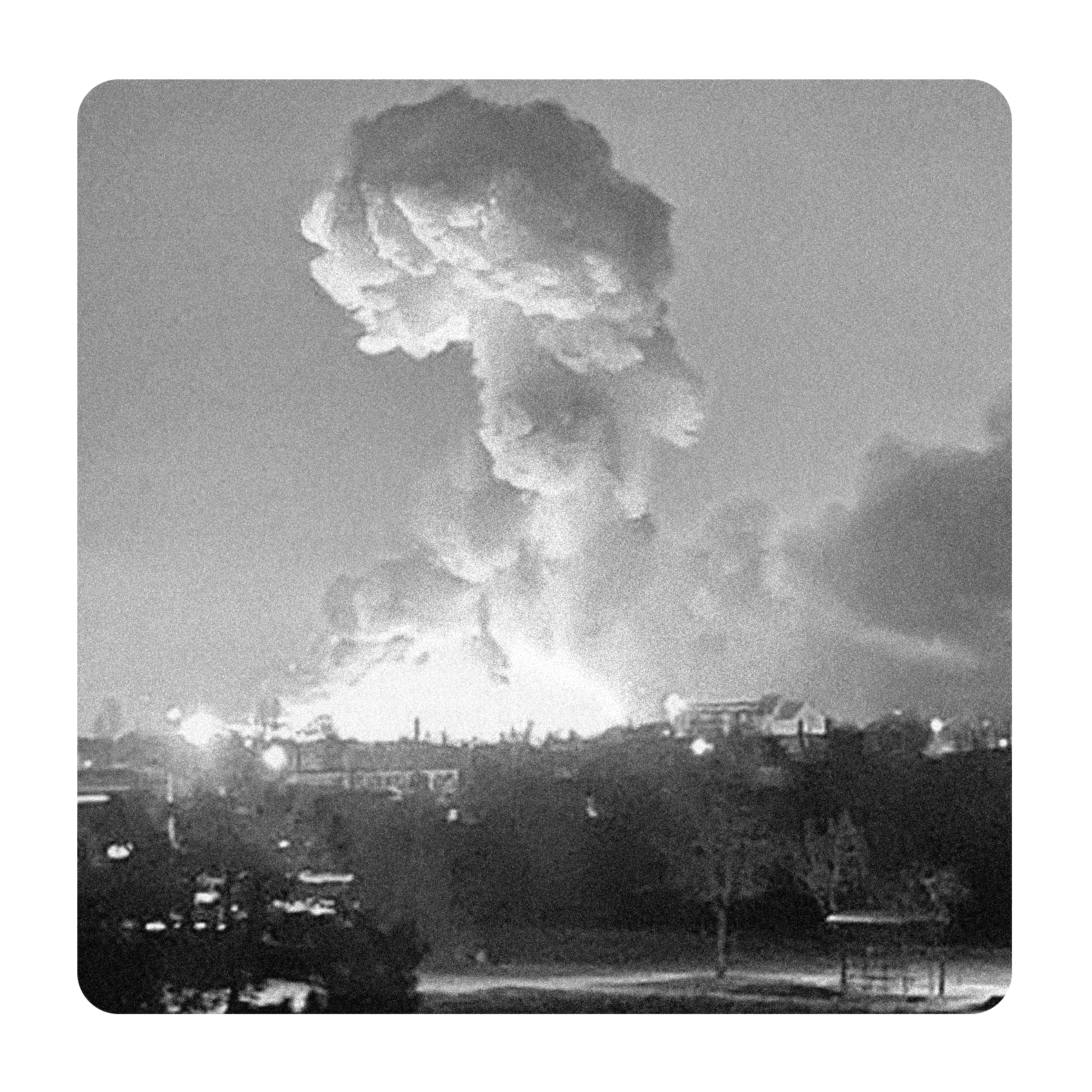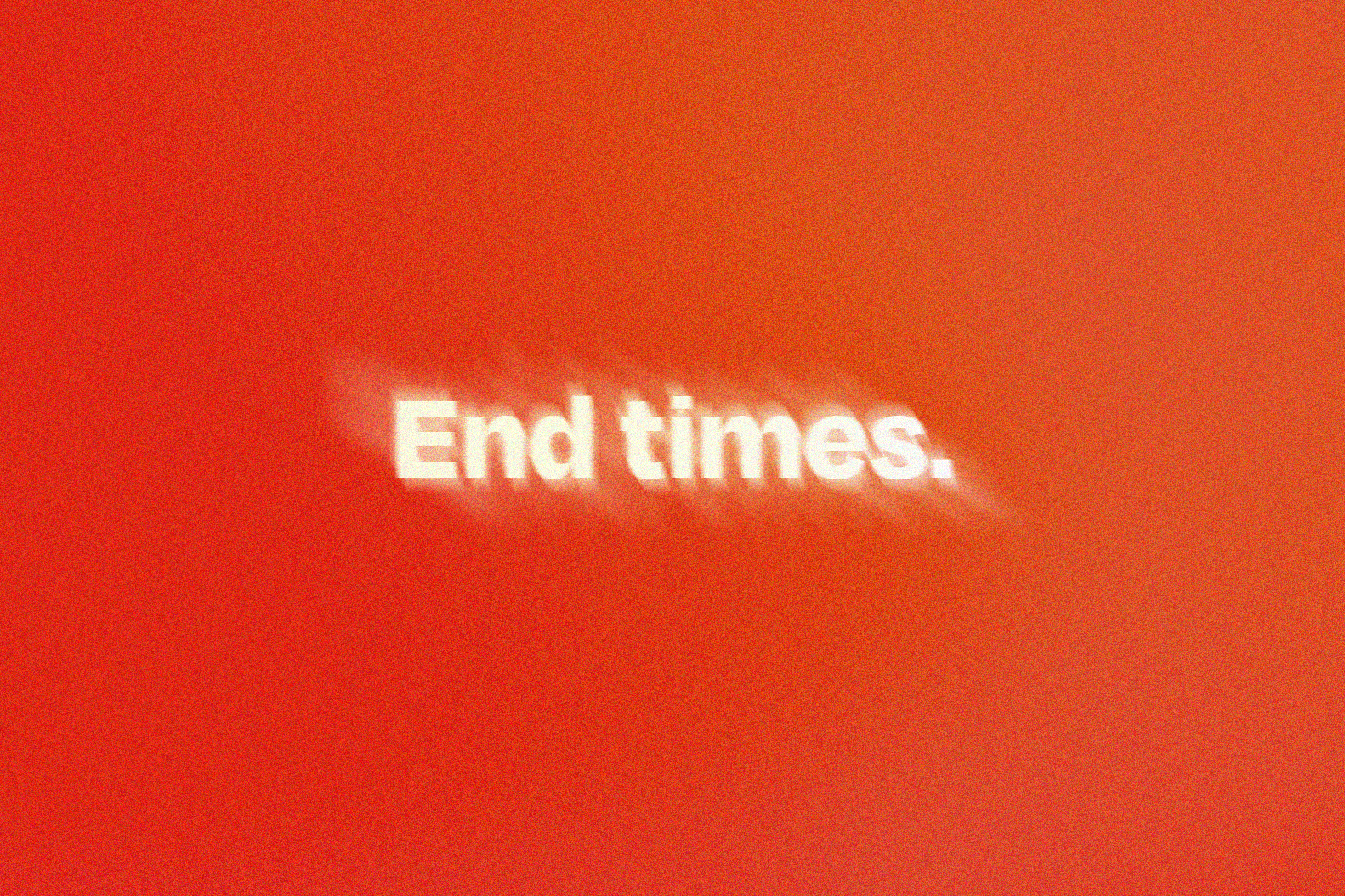You don’t have to look back far to see that we live in tumultuous times.
Over the last two years, we’ve seen how the coronavirus has ground the world to a halt. The pestilence still rages on today.
There have been wars and rumours of wars as recently as this week. And just this morning, an earthquake in Northern Sumatra, Indonesia that was felt right beneath our feet.
There hasn’t been a period in my lifetime up till now, when the world just seems to keep getting worse.
I believe these things are happening not without reason: We’re living in the End-Times.

But what does that mean?
And what do some other obscure terms like eschatology mean when friends discuss Matthew 24 or the Bible talks about the end of the world?
Before we go further, let me acknowledge there are authors more worthy to explain these concepts than I am.
My simple explanations below stand upon the shoulders of many a brilliant believer in places like Got Questions.
What do the End-Times mean?
The End-Times refers to the period of time leading up to the end of the age. Apart from End-Times, you may also have heard it called:
- The end days
- The end of days
- The last days
- The final days
- The end of time
- The end of all things
- The end of the world
This age — the current one we live in today — is known as the Church Age.
The Church Age then, is a window of mercy and grace opened from when Jesus Christ came down to the world as a baby boy, died on the cross for the world’s sins as a sinless man, resurrected on the third day and ascended to heaven.
Christ made it possible for man to repent and be cleansed of their sin, and to have a personal relationship with God the Father in heaven.
This is what it means to be saved. The Church Age is now.
It’s a window of grace, or a window of mercy, because this opportunity to be a part of God’s kingdom doesn’t last forever.
2 Peter 3:9 tells us that: “The Lord is not slow in keeping his promise, as some understand slowness. Instead he is patient with you, not wanting anyone to perish, but everyone to come to repentance.”
Judgement is what comes at the end of the age. God, who is holy, cannot tolerate sin. Being just, He cannot tolerate unrighteousness.
In the end, all who persist in unrepentance will have to face His judgement.
What are birth pains?
The phrase “birth pains” comes from Matthew 24, where Jesus describes to His disciples the signs of the End-Times.
You may have heard this term in sermons or conversations (birth pangs is also used) to explain why things are getting worse in the world.
Let’s dive into the context of how it was used:
Jesus answered: “Watch out that no one deceives you. For many will come in my name, claiming, ‘I am the Messiah,’ and will deceive many. You will hear of wars and rumours of wars, but see to it that you are not alarmed. Such things must happen, but the end is still to come. Nation will rise against nation, and kingdom against kingdom. There will be famines and earthquakes in various places. All these are the beginning of birth pains. (Matthew 24:4-11)
It’s interesting to note that Jesus tells us not to be “alarmed” by wars and rumours of wars.

Geopolitical strife, famines, earthquakes: These things must happen in a fallen world, “but the end is still to come”.
Today alone we’ve seen the world rocked by pestilence, wars and earthquakes. But this is not the time for anxiety or fear.
Instead, it is time to pay attention.
In my view, it is better to use the whole term, “the beginning of birth pains”, since it follows that these early birth pains (the world’s troubles and trials) get progressively worse before the completion of childbirth (the end of the age).
To rephrase, they precede the worsening labour pains (Matthew 24:9-12) that lead up to the window of grace being shut.
It is also worth noting that many of the worsening labour signs have already been seen in history and can be seen in the world today.
What is “eschatology”?
Finally, what we’ve explored in this article so far is an attempt at eschatology. Eschatology is the study of all things relating to the End-Times.
Eschatology isn’t an intellectual pursuit, or a passion reserved for the more cerebral Christian.
Knowing what God says about the end of the age is of utmost importance to believers and non-believers alike — eternal life and death are at stake here!
In the hopes of understanding more about the End-Times, only then would we know how to conduct ourselves and live wisely in these final days.
As Thir.st continues our End-Times series, we invite readers to stay tuned for more articles to come such as:
- What is the coming of the Son of Man?
- Is the Rapture the same thing as the Second Coming?
- What will Tribulation look like?
- What is the Final Judgement?
Indeed, God promises us great blessings as we do so. So let us live with discernment, urgency and an unshakeable hope for the days to come.
- How much do the End-Times affect your life on a daily basis?
- What is one specific thing you would do differently if you knew the world was ending tomorrow?
- What’s holding you back from living life like that? Pray and ask the Lord for help in your walk and witness.









